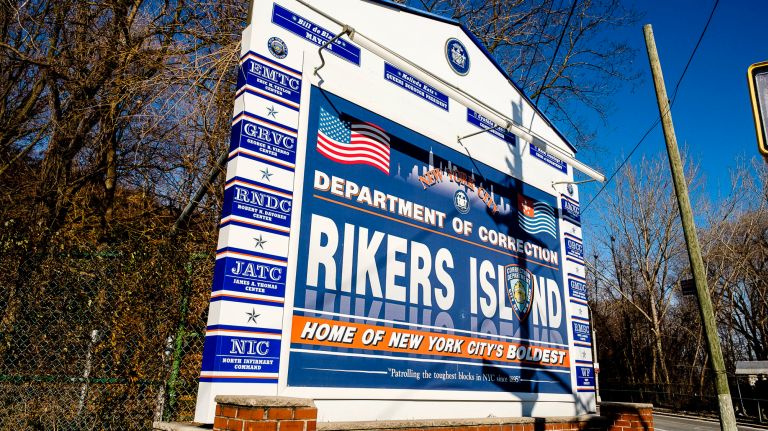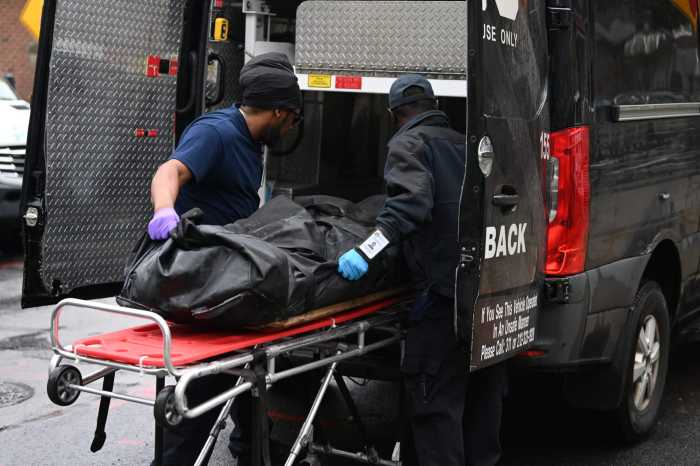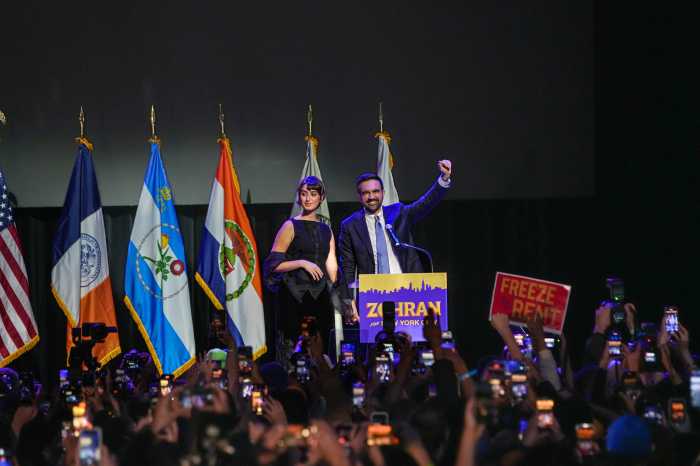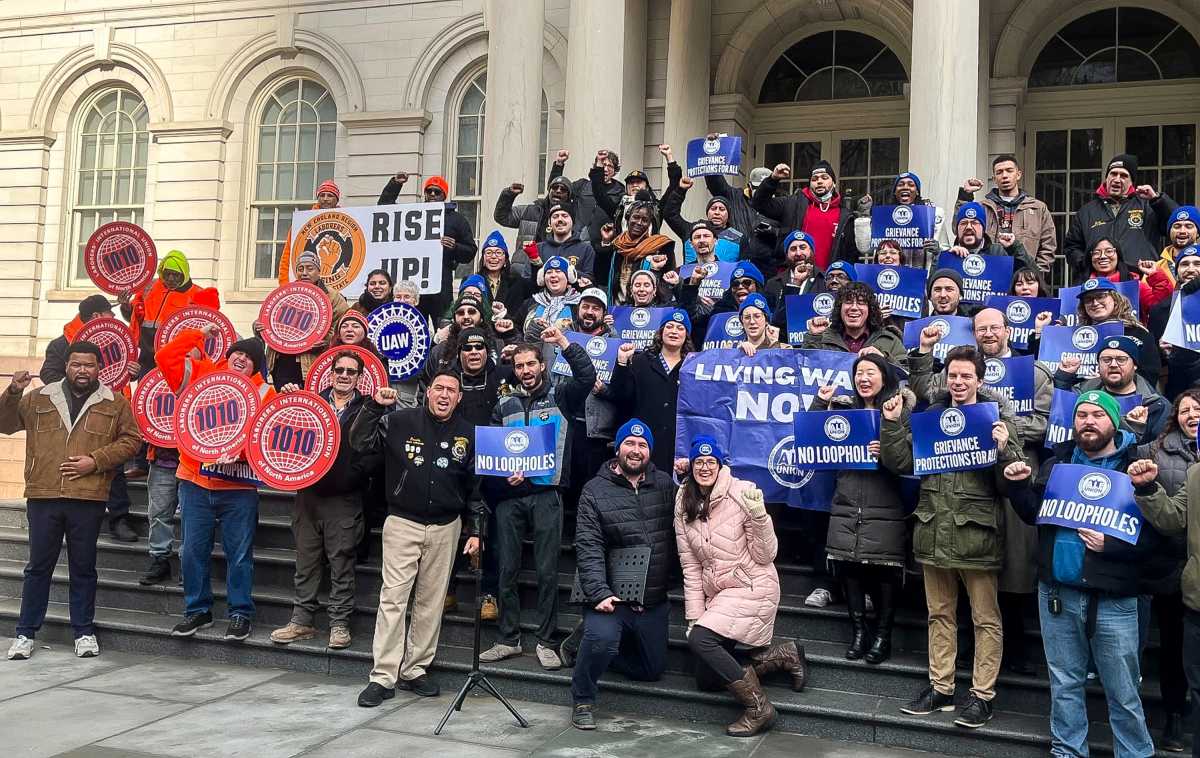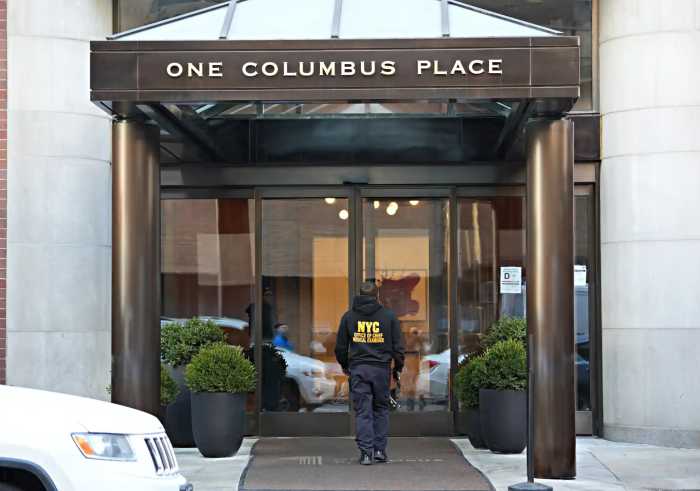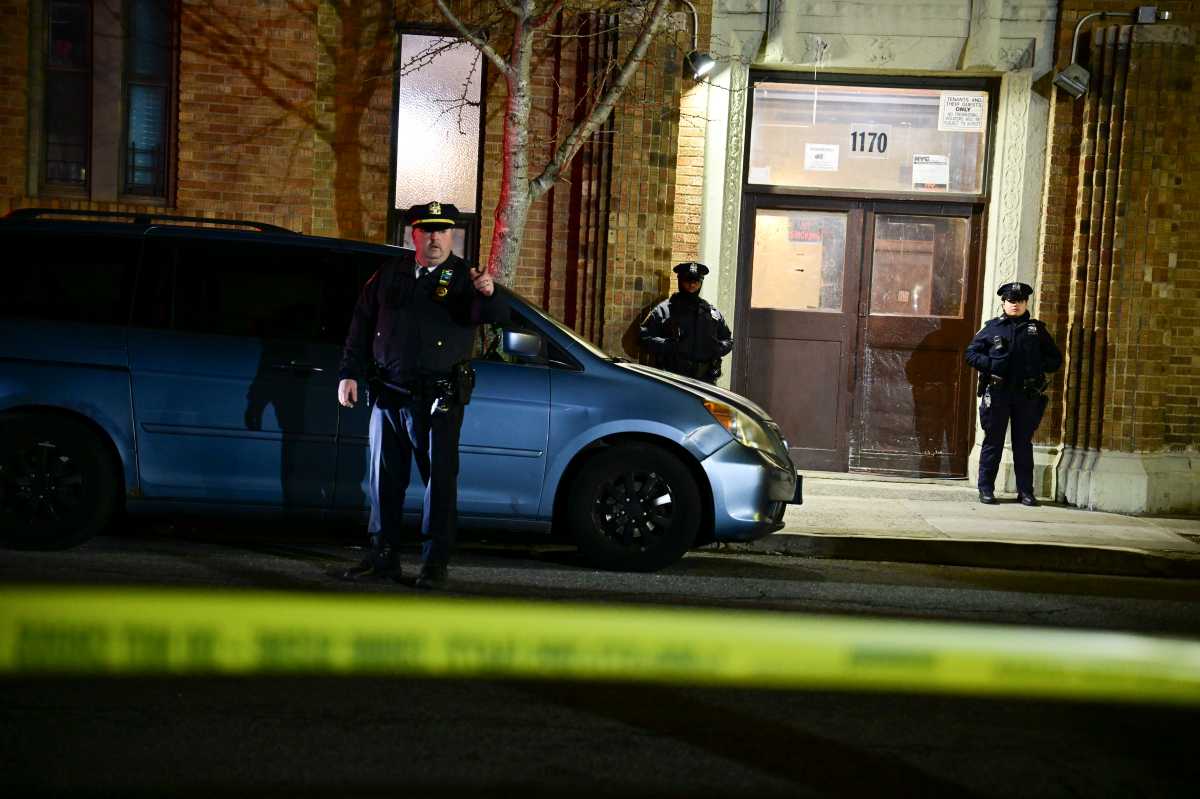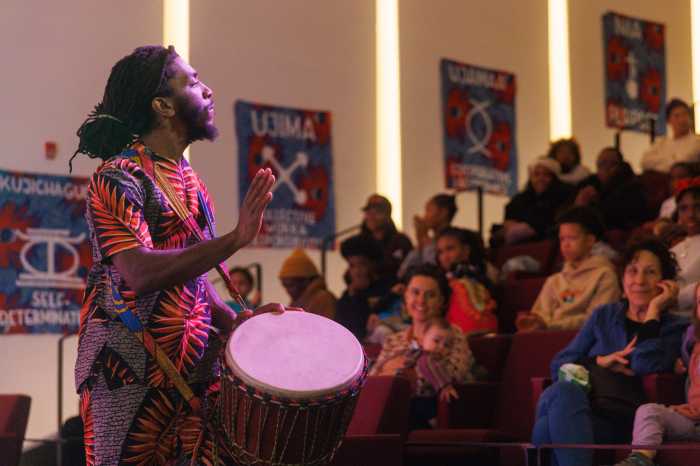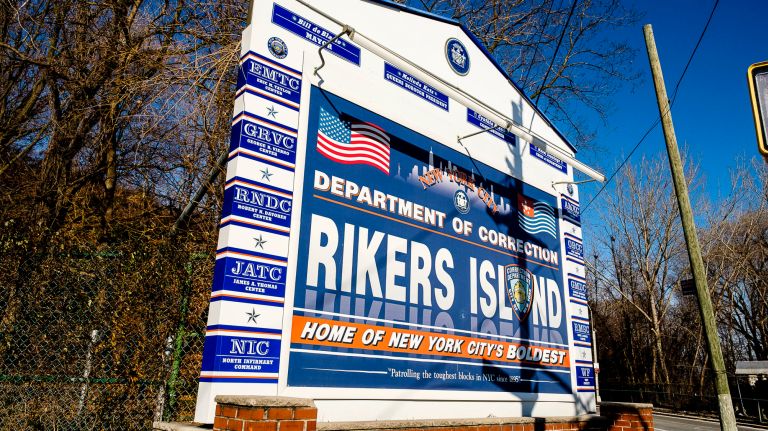
Amid jeering from protesters, the City Planning Commission voted 9-to-3 Tuesday in favor of four jails proposed as replacements for the Rikers Island detention complex, sending the initiative to the City Council for review.
Dozens opposed to the construction of any new jails shouted over commissioners as they explained their positions on the proposed facilities, the prospective footprints of which the Mayor’s Office of Criminal Justice recently pared down. Proponents argue that opening one new jail in each borough close enough to courts will hasten the pace of adjudication and provide modern and humane locations to transfer people currently held at Rikers. Staten Island is not slated to get a lockup because officials determined too few of its residents are incarcerated to merit one.
"This is among the most consequential applications to come before the city Planning Commission in years, and it’s an application that has been years in the making," said Marisa Lago, the chair of the Planning Commission and the director of the Department of City Planning. "I’m proud that the Commission can play its part by voting to approve the four borough-based jails, an essential part of closing Rikers Island. Today’s vote is so much more than a vote on site selections and special permits. It’s a vote to end a bleak era in New York City’s criminal justice history."
Nine of the body’s 13 commissioners voted in favor of the plan over a near-constant stream of objections, including chants of "no new jails" and "shame."
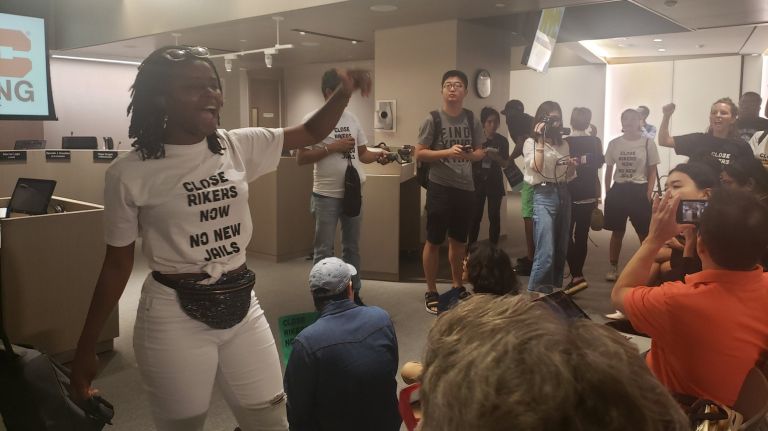
Three negative votes came from commissioners appointed by borough presidents (as opposed to by the public advocate or administration): Raj Rampershad, Orlando Marín and Alfred C. Cerullo III. One commissioner, Michelle de la Uz, was absent.
With the Planning Commission’s nod, the proposals are slated to come before the City Council, which has scheduled a public hearing on the facilities before a subcommittee for Thursday. A vote from the full Council will likely be the final step in the approval process.
New Yorkers have spent hours testifying about the plan at prior meetings, with some urging the administration to expedite decommissioning Rikers and others affiliated with No New Jails admonishing City Hall for putting any resources toward lockups rather than investing in alternatives to incarceration, mental health resources, housing assistance, education and other areas.
"We have this opportunity in New York City to actually not only focus on Rikers, but tackle mass incarceration itself," said Brittany Williams, 30, a Brooklyn resident who said the city should first focus on immediately improving conditions for incarcerated people — budgeting for heating, air conditioning and other needs — and examine alternative ways to close Rikers without adding jails.
The city settled a lawsuit in 2015 brought by Rikers detainees and joined by former U.S. Attorney Preet Bharara’s office that determined male adolescents were not protected from one another or from staff’s excessive use of force or reliance on solitary confinement. Most of those on Rikers Island have not been convicted and are waiting for their cases to be adjudicated in court.
"I’m directly impacted," Williams added, noting black and brown Americans have been disproportionately incarcerated. "I’ve been incarcerated before, my uncles, grandfather, his grandfather — there’s a long system of incarceration … "
However, Darren Mack and others who have spent time at Rikers have pressed planning commissioners to promptly pass the proposal.
"We believe that this is a step forward to make history with the biggest decarceration plan in our country," said Mack, part of JustLeadershipUSA, which he said has a platform that also offers proposals for curbing incarceration. "What’s the strategy to close Rikers on a specific timeline? If they have one that’s better than what we have now, I will support that."
In June of 2017, Mayor Bill de Blasio announced his goal of reducing the incarcerated population enough to shut down detention facilities on Rikers within a decade. At the time, an average of 9,400 people were held daily in city jails.
By this summer, various legislative changes enacted at the state level, such as bail reform, convinced the administration it could more quickly and dramatically reduce the incarcerated population. City Hall now plans to shut Rikers by 2026, leaving space for 4,000 people in the four proposed jails. The city has budgeted $8.7 billion for the facilities but does not have precise cost estimates yet.
With the new population projections, the mayor’s team has slightly decreased the size of the jails, with the facilities expected to be between 1.17 million and 1.33 million square feet and to stretch between 245 and 450 feet into the sky, according to planning documents.
Some living near the prospective new jails have balked at their sizes and suggested they could overwhelm surrounding neighborhoods.
In the Bronx, city officials said the closest suitably sized property for a jail that’s readily available is an NYPD tow pound two miles from court. Leaders of the nearby 1,200-household Diego Beekman Mutual Housing Association said the pound is the centerpiece of their neighborhood revitalization plan. They have filed a petition challenging the city’s decision to combine all of the proposed facilities into one application.



